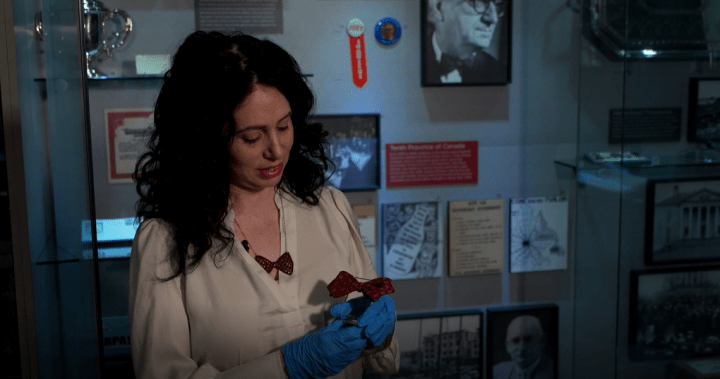Sunday marks 75 years since Newfoundland officially became part of Canada, a moment that continues to generate debate and reflection. From the bars of George Street to the halls of political power, Newfoundlanders have questioned and celebrated the union over the years. The Newfoundland and Labrador government is commemorating the occasion with special community grants, awards, and scholarships, as well as offering commemorative license plates with the Confederation 75 logo. At The Rooms, visitors can explore the “Here We Made a Home” exhibition, which delves into the history and aftermath of the final vote that led Newfoundland to join Confederation.
The history of Newfoundland’s entry into Confederation is rooted in significant economic challenges faced by the island. After the end of responsible government and the implementation of the Commission of Government in 1934, Newfoundland was struggling under the weight of debt from the First World War and the Great Depression. The idea of joining Canada was presented to the people as a way to alleviate financial burdens and provide economic stability. Joey Smallwood, known as the “Father of Confederation,” played a key role in campaigning for the union, eventually becoming Newfoundland’s first premier following the vote for Confederation.
Two referendums were held in 1948 to determine Newfoundland’s future. The first referendum offered three options: responsible government, union with Canada under Confederation, or operation under British authority as a Commission of Government. The results were split, with Confederation receiving 41% of the vote and responsible government winning 44.6%. A second vote was held the following month, with Confederation ultimately securing 52.3% of the vote. The Terms of Union with Canada were signed in December, officially making Newfoundland a province of Canada on March 31, 1949. Despite the contentious nature of the vote, Newfoundland gained Canadian citizenship.
Actor and writer Greg Malone challenged the narrative of Confederation in his book “Don’t Tell the Newfoundlanders,” exploring the behind-the-scenes machinations that led to Newfoundland joining Canada. Malone’s research revealed the strategic importance of Newfoundland during the war, as well as the economic factors that influenced the decision to join Canada. He highlighted the controversy surrounding the referendum and the role of Britain and Canada in shaping the outcome. Malone believes that Newfoundland would have been better off if it had been able to negotiate the Terms of Union on its own terms, leading to decades of tension with Ottawa over various issues.
The legacy of Confederation in Newfoundland continues to be a topic of debate and reflection. While some see benefits such as increased mobility and security within Canada, others question the promises of prosperity that were made. Every generation brings its own perspectives and experiences to the discussion, wondering how life would have been different if a different choice had been made. The impact of Confederation on Newfoundland’s development and relationship with Ottawa remains a complex and evolving narrative. Despite 75 years having passed since joining Canada, the debate surrounding Confederation is likely to persist for years to come, with the true impact of the decision remaining unknowable.


